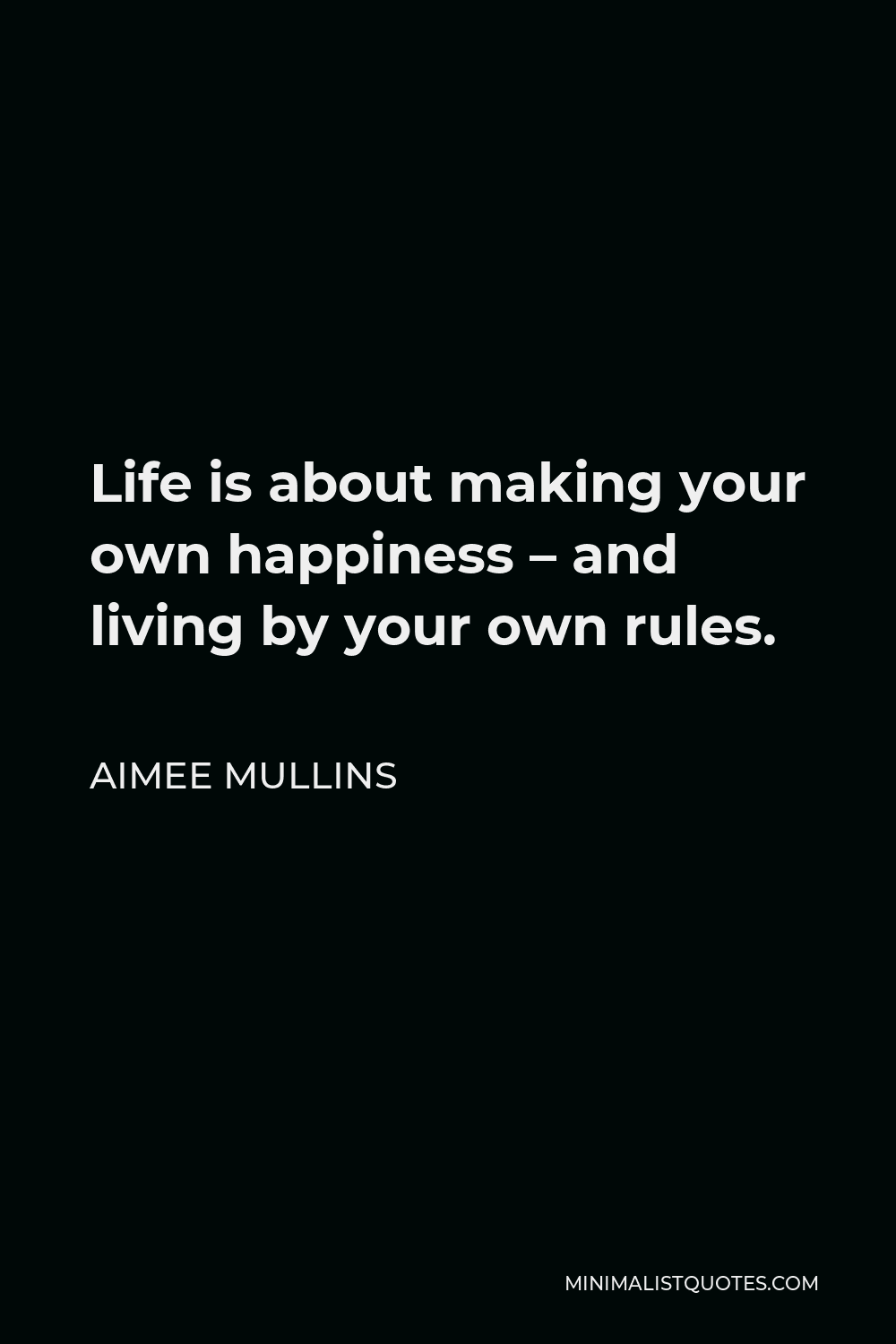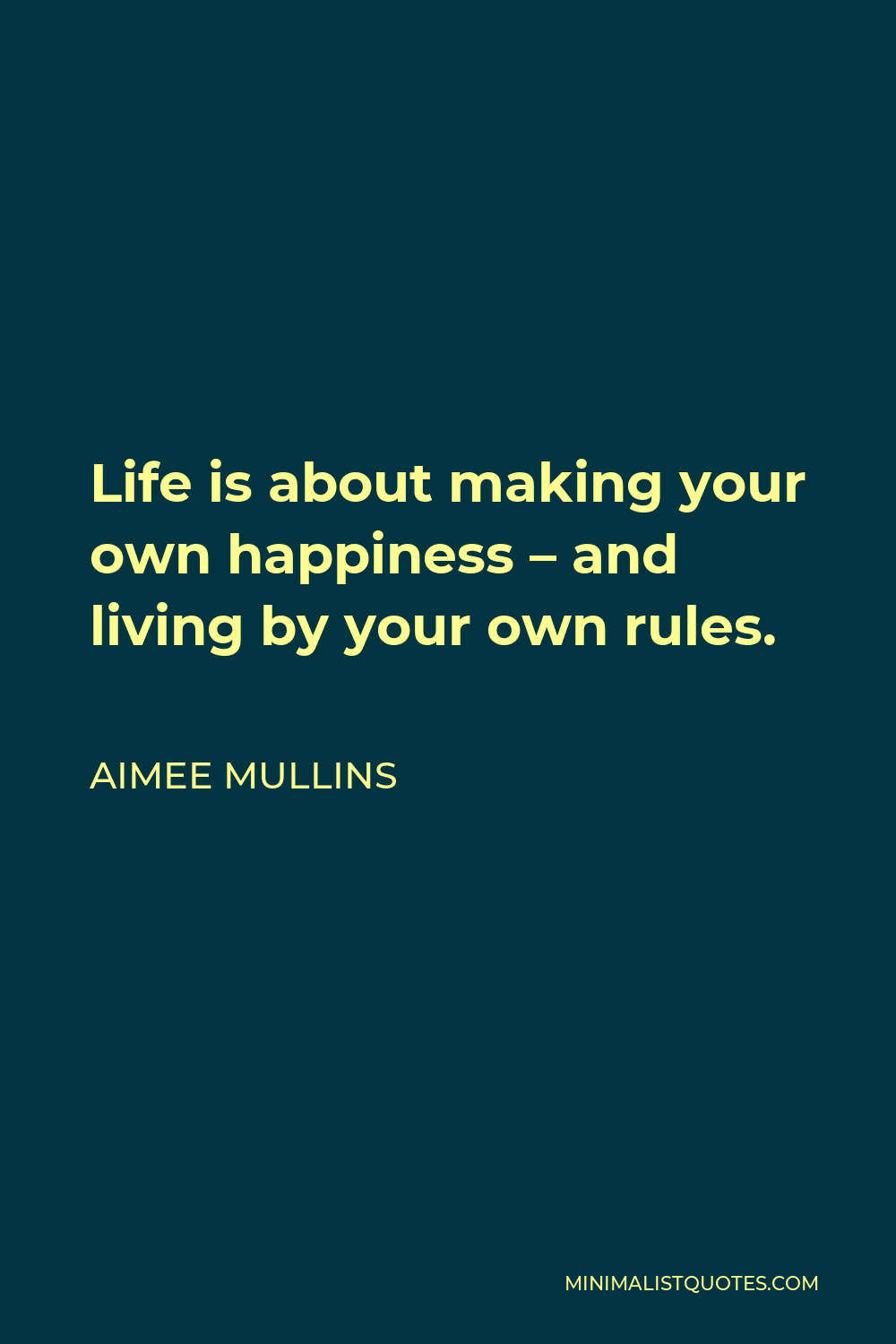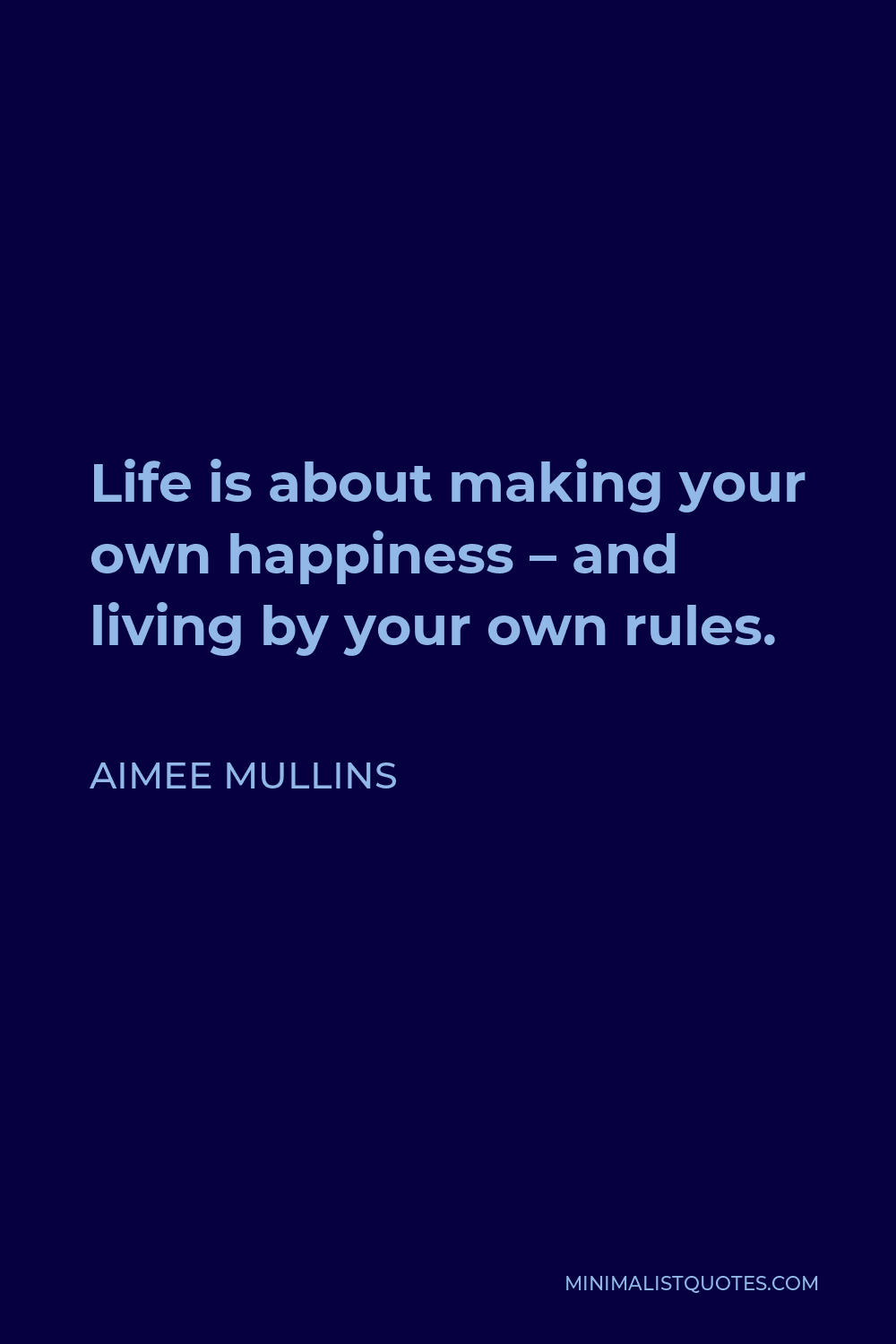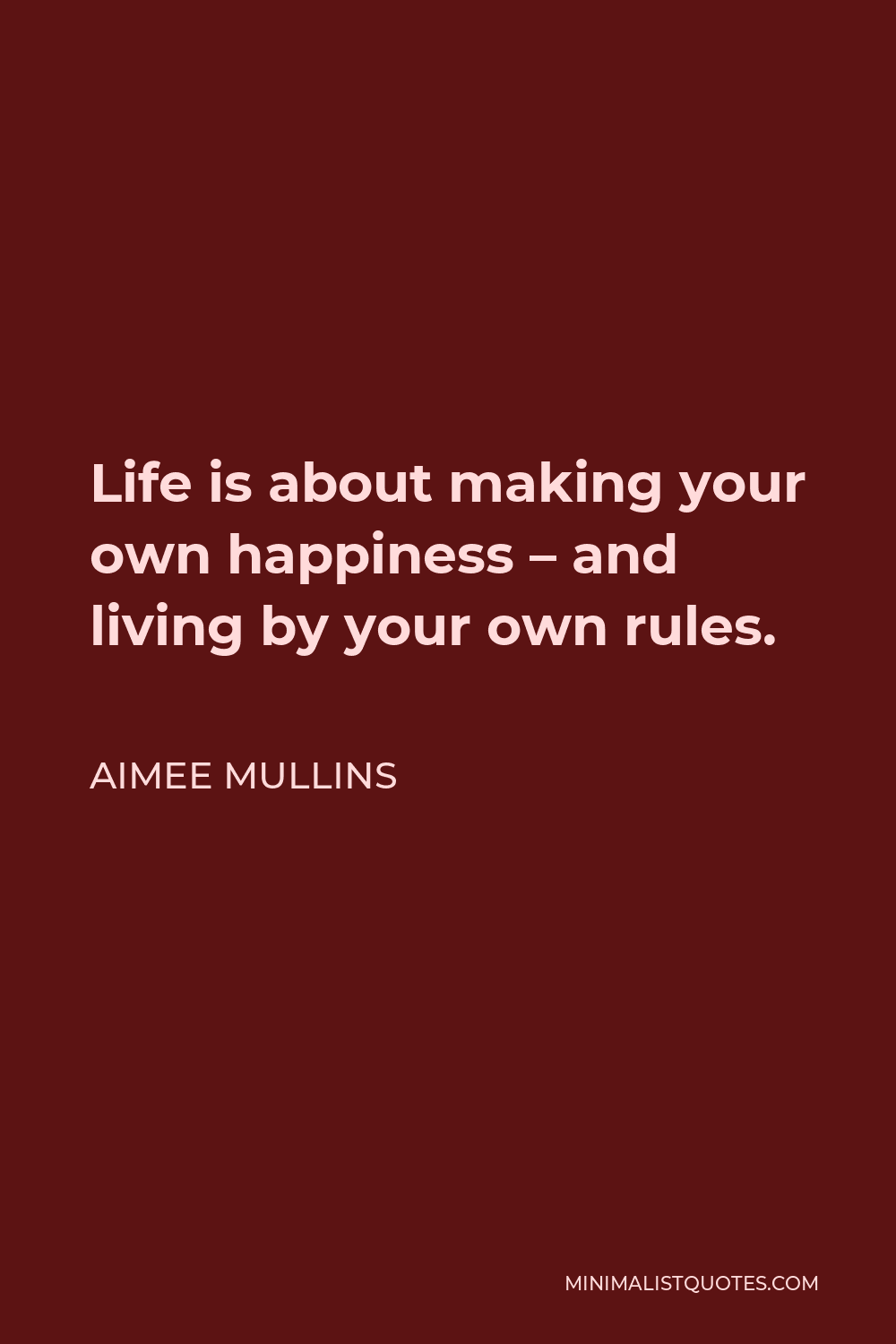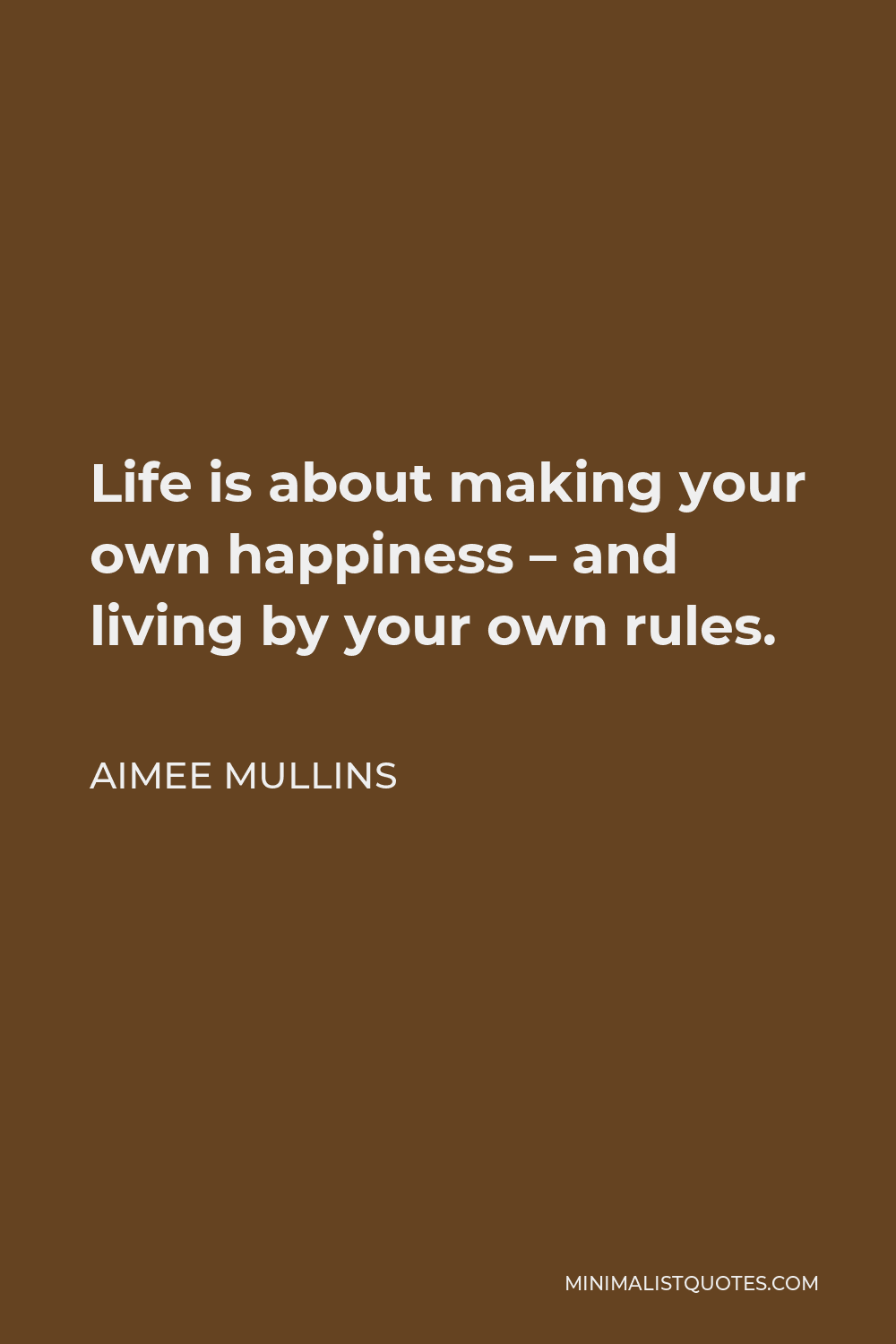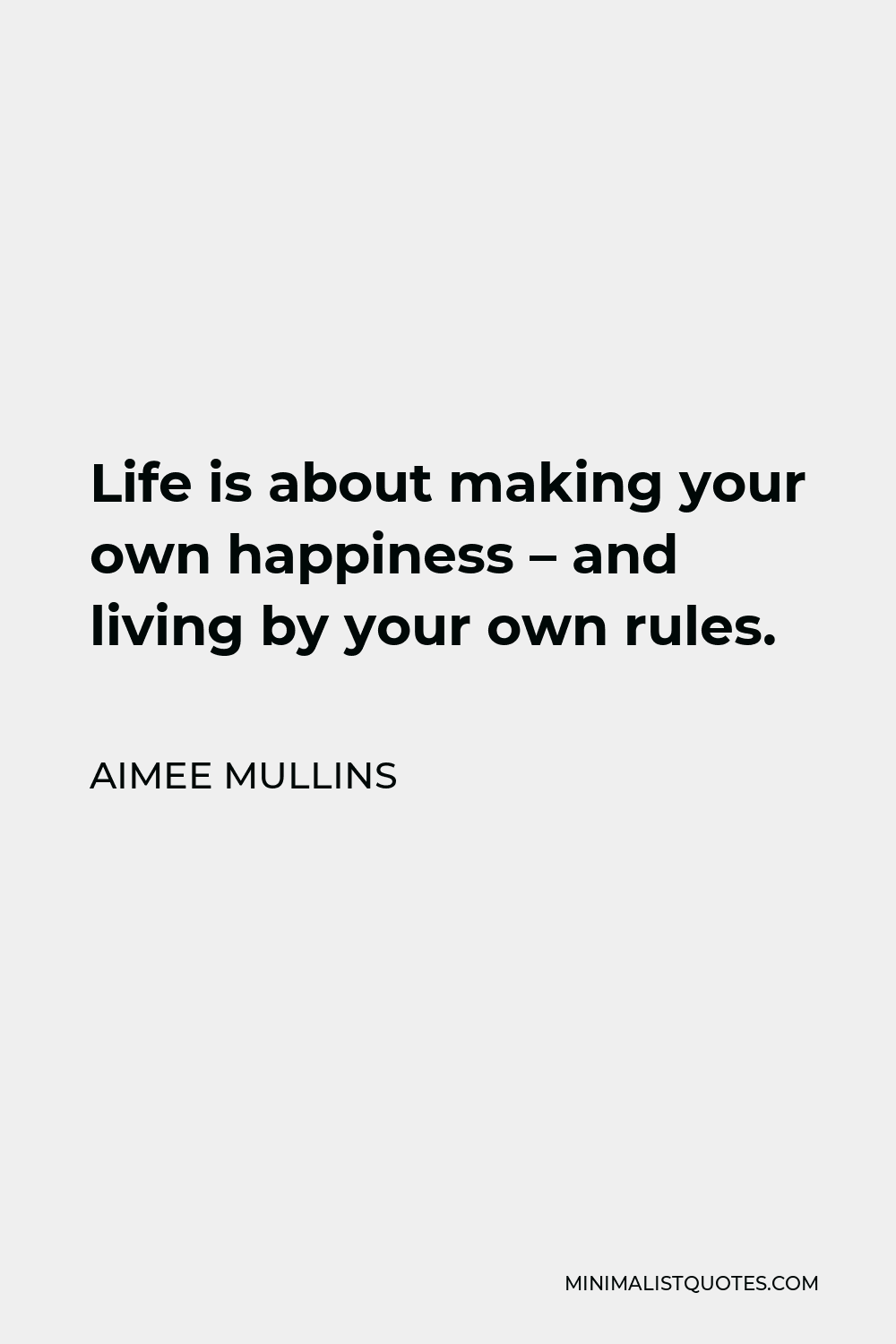Belief in oneself is incredibly infectious. It generates momentum, the collective force of which far outweighs any kernel of self-doubt that may creep in.
AIMEE MULLINSLife is about making your own happiness – and living by your own rules.
More Aimee Mullins Quotes
-





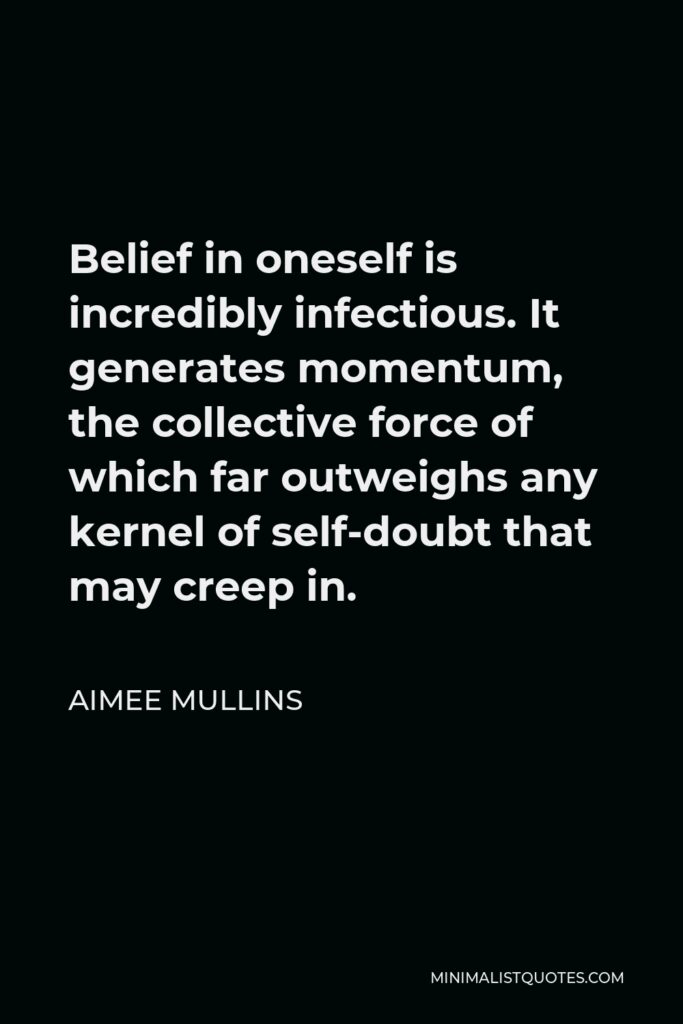

-





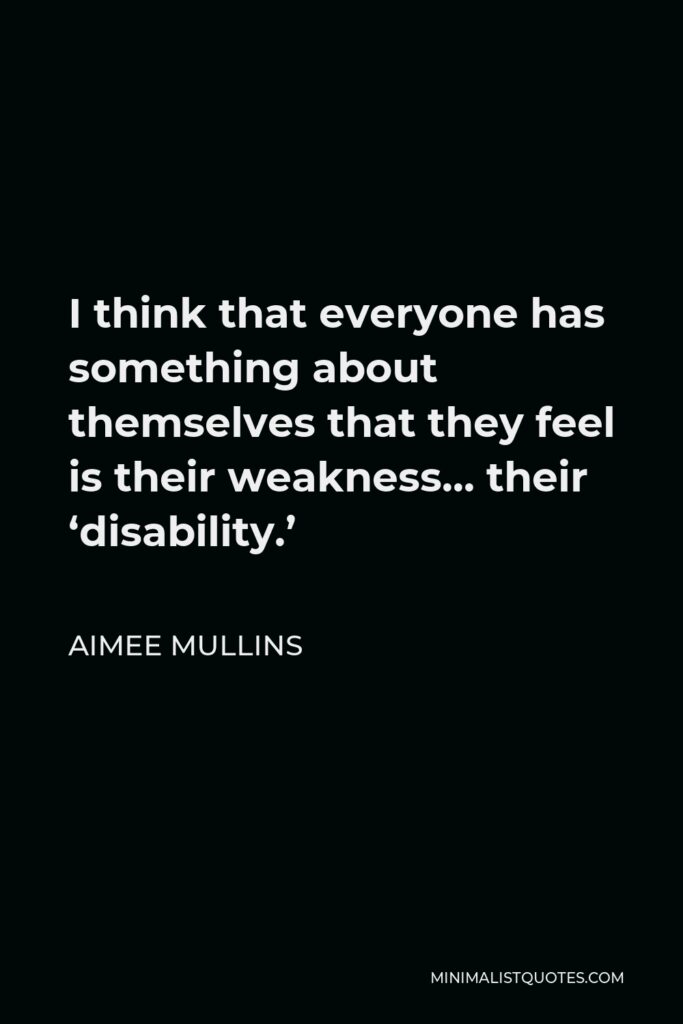

I think that everyone has something about themselves that they feel is their weakness… their ‘disability.’
AIMEE MULLINS -





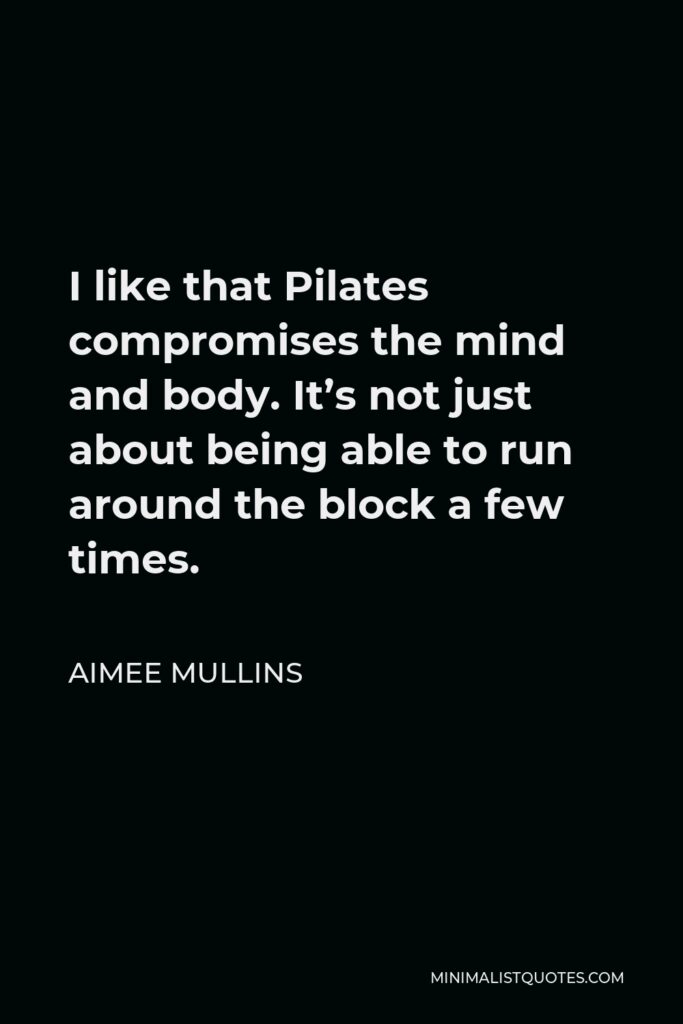

I like that Pilates compromises the mind and body. It’s not just about being able to run around the block a few times.
AIMEE MULLINS -





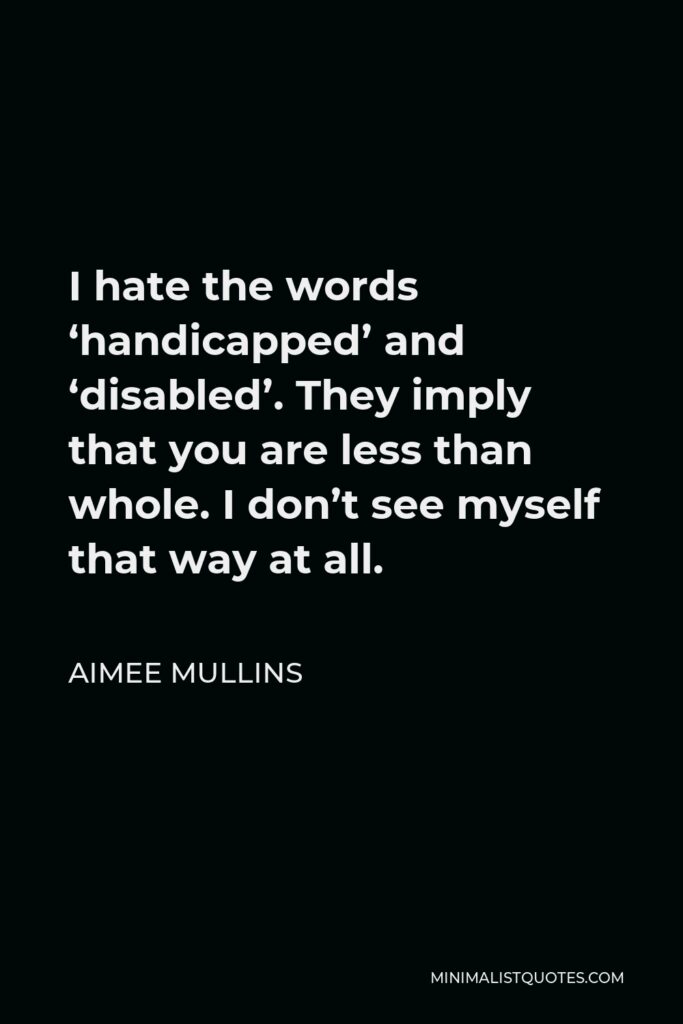

I hate the words ‘handicapped’ and ‘disabled’. They imply that you are less than whole. I don’t see myself that way at all.
AIMEE MULLINS -





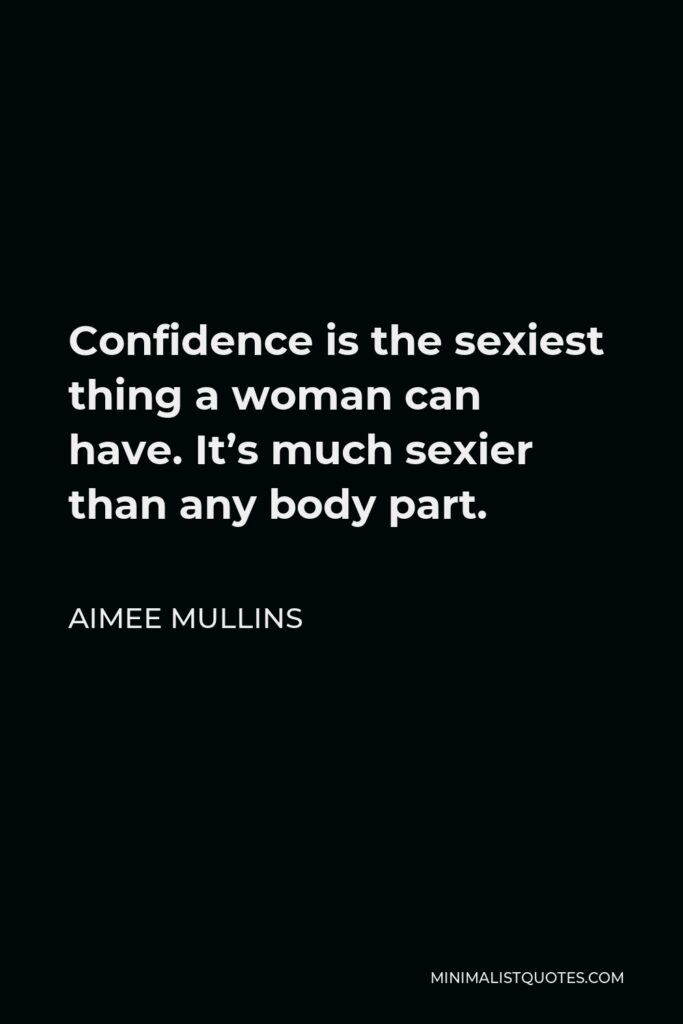

Confidence is the sexiest thing a woman can have. It’s much sexier than any body part.
AIMEE MULLINS -





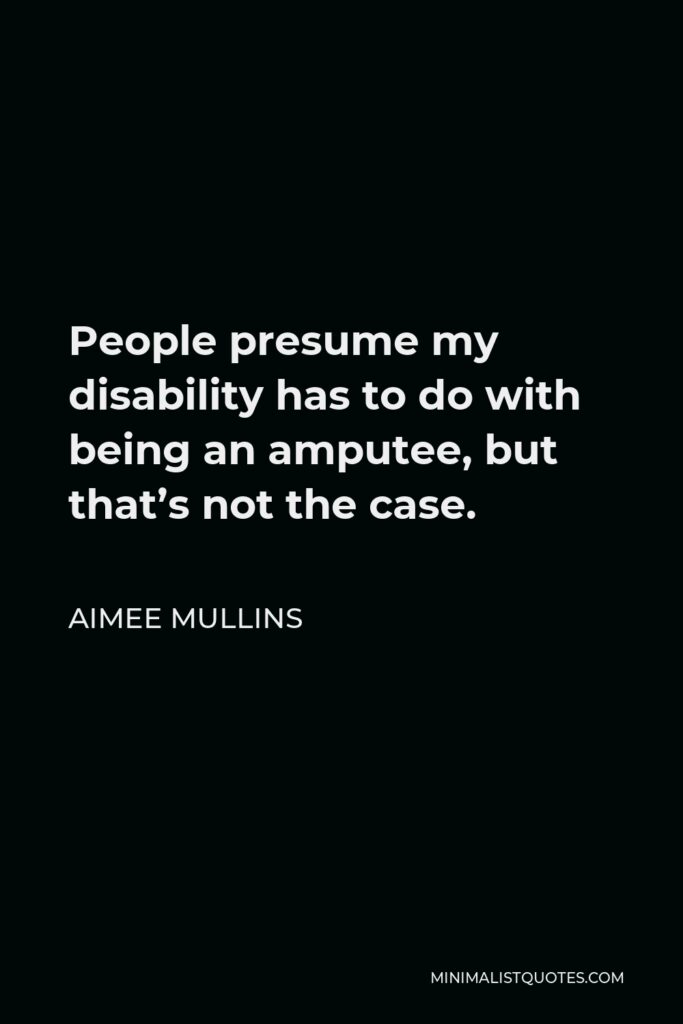

People presume my disability has to do with being an amputee, but that’s not the case.
AIMEE MULLINS -





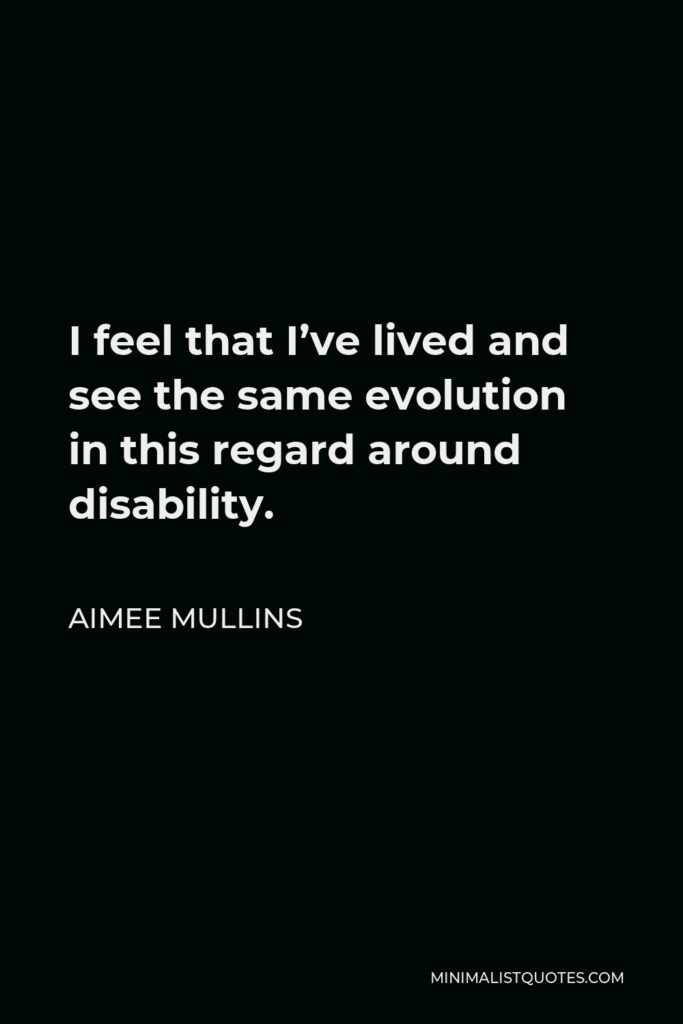

I feel that I’ve lived and see the same evolution in this regard around disability.
AIMEE MULLINS -





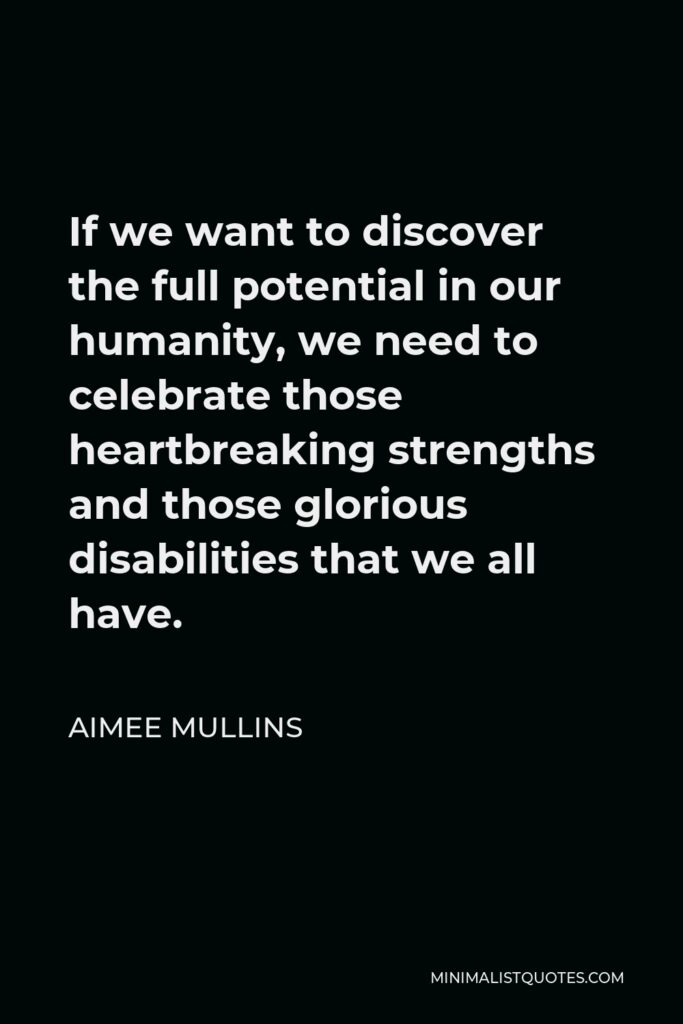

If we want to discover the full potential in our humanity, we need to celebrate those heartbreaking strengths and those glorious disabilities that we all have.
AIMEE MULLINS -





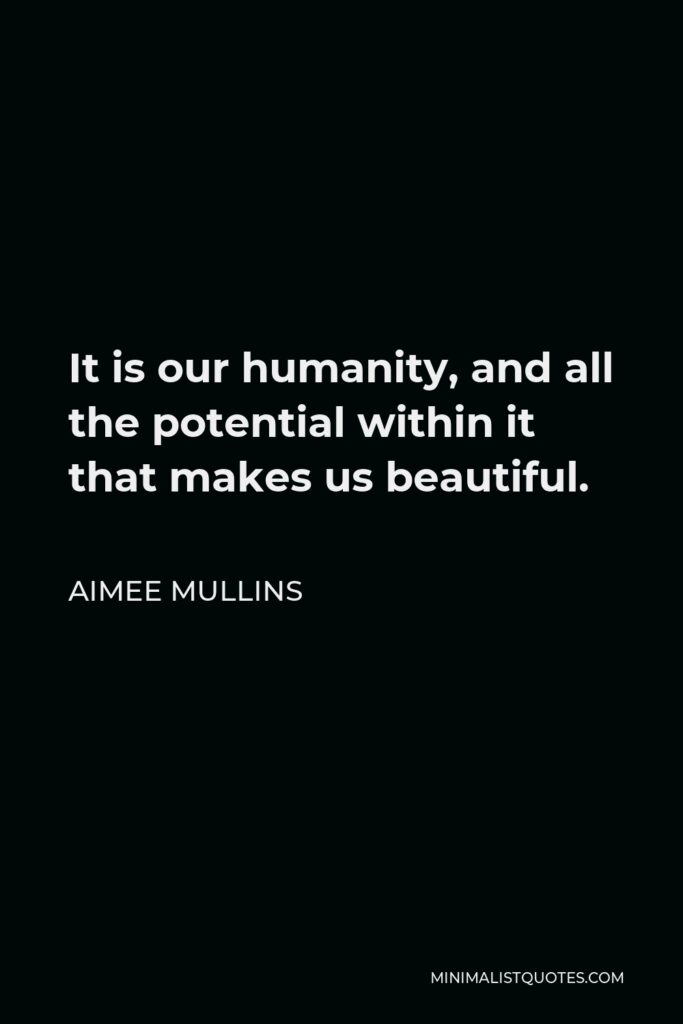

It is our humanity, and all the potential within it that makes us beautiful.
AIMEE MULLINS -





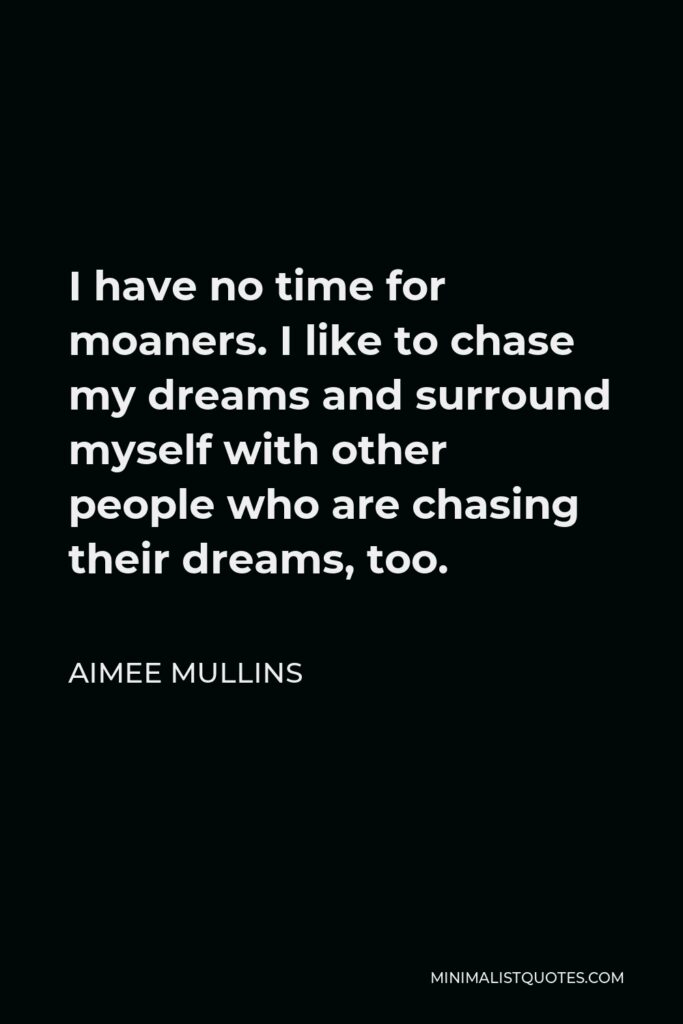

I have no time for moaners. I like to chase my dreams and surround myself with other people who are chasing their dreams, too.
AIMEE MULLINS -





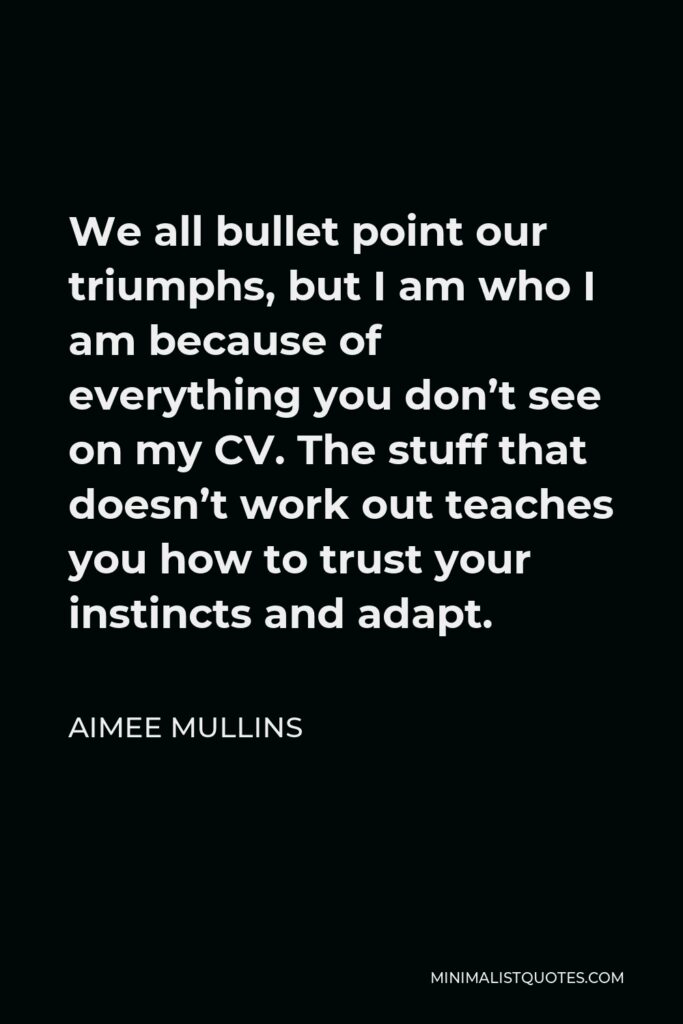

We all bullet point our triumphs, but I am who I am because of everything you don’t see on my CV. The stuff that doesn’t work out teaches you how to trust your instincts and adapt.
AIMEE MULLINS -





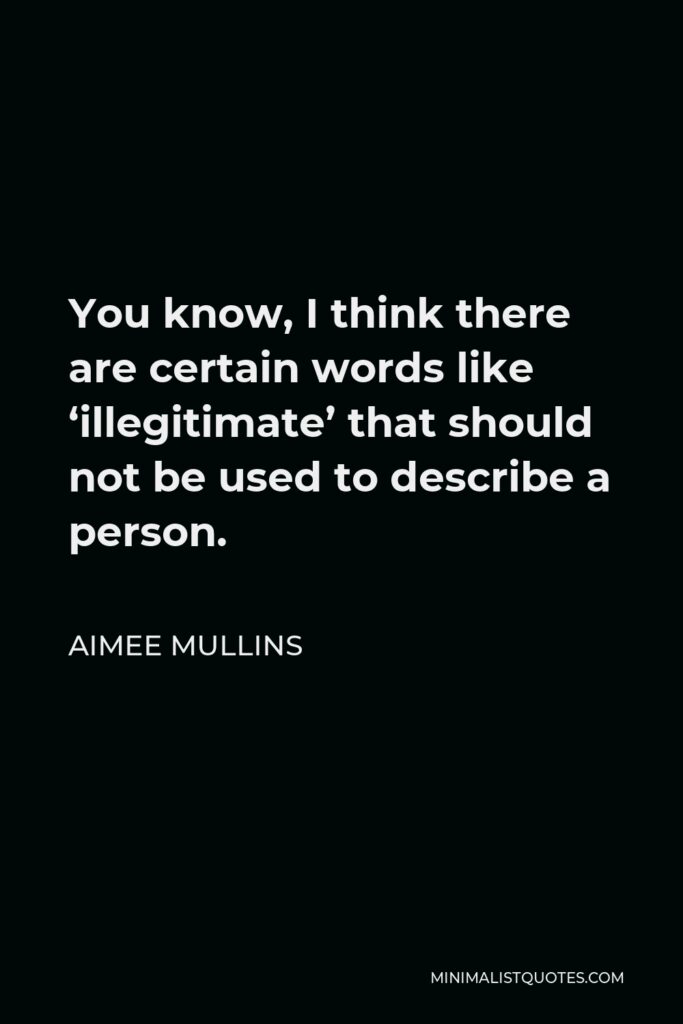

You know, I think there are certain words like ‘illegitimate’ that should not be used to describe a person.
AIMEE MULLINS -





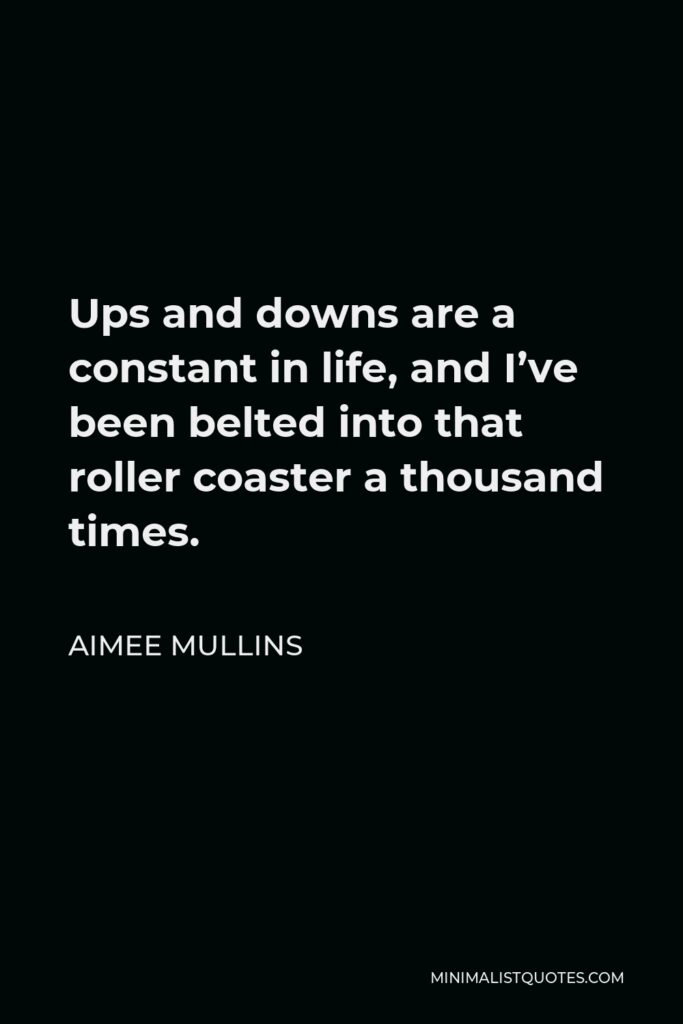

Ups and downs are a constant in life, and I’ve been belted into that roller coaster a thousand times.
AIMEE MULLINS -





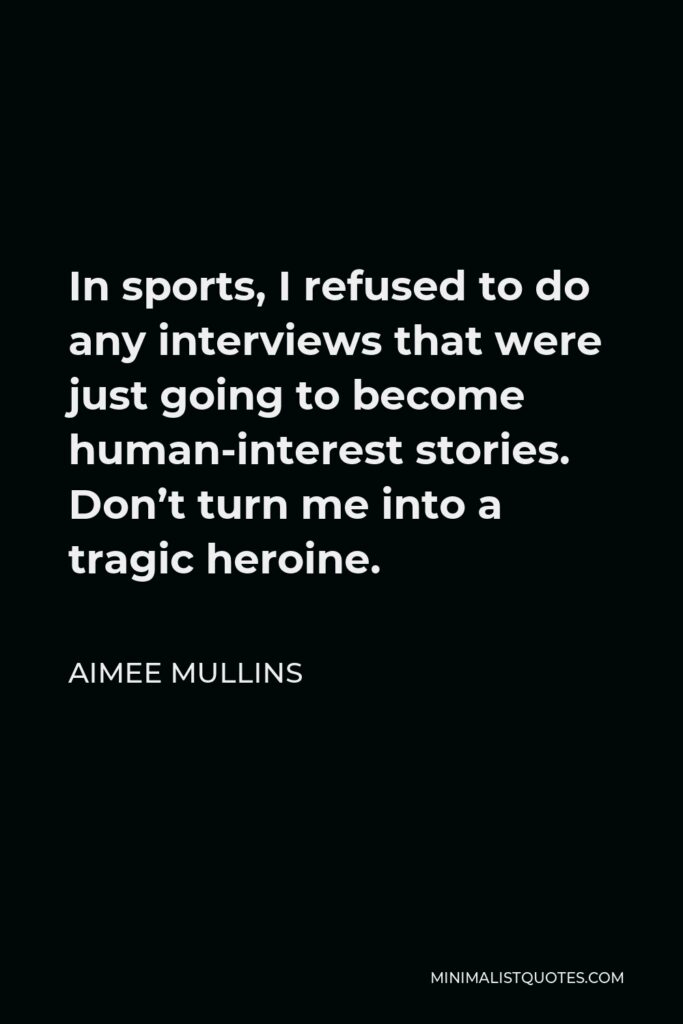

In sports, I refused to do any interviews that were just going to become human-interest stories. Don’t turn me into a tragic heroine.
AIMEE MULLINS -





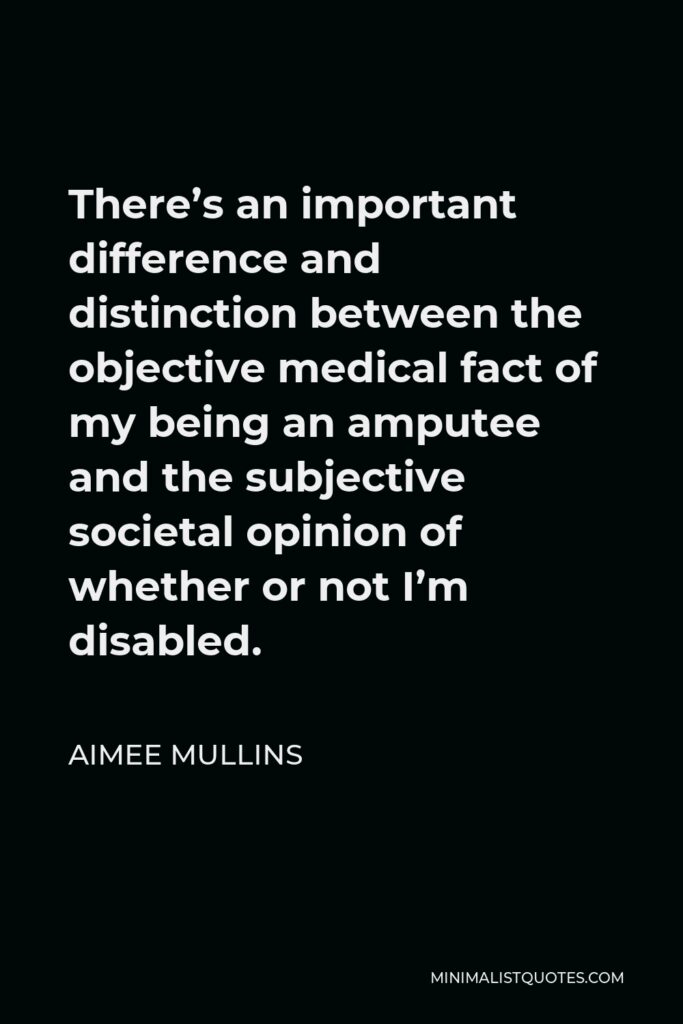

There’s an important difference and distinction between the objective medical fact of my being an amputee and the subjective societal opinion of whether or not I’m disabled.
AIMEE MULLINS -





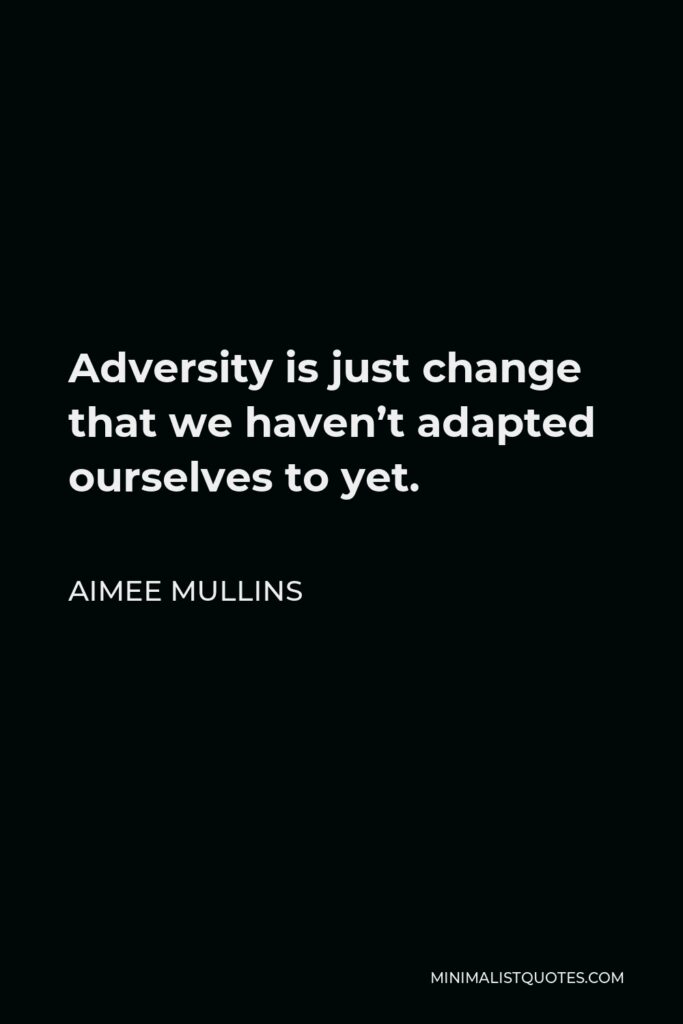

Adversity is just change that we haven’t adapted ourselves to yet.
AIMEE MULLINS
